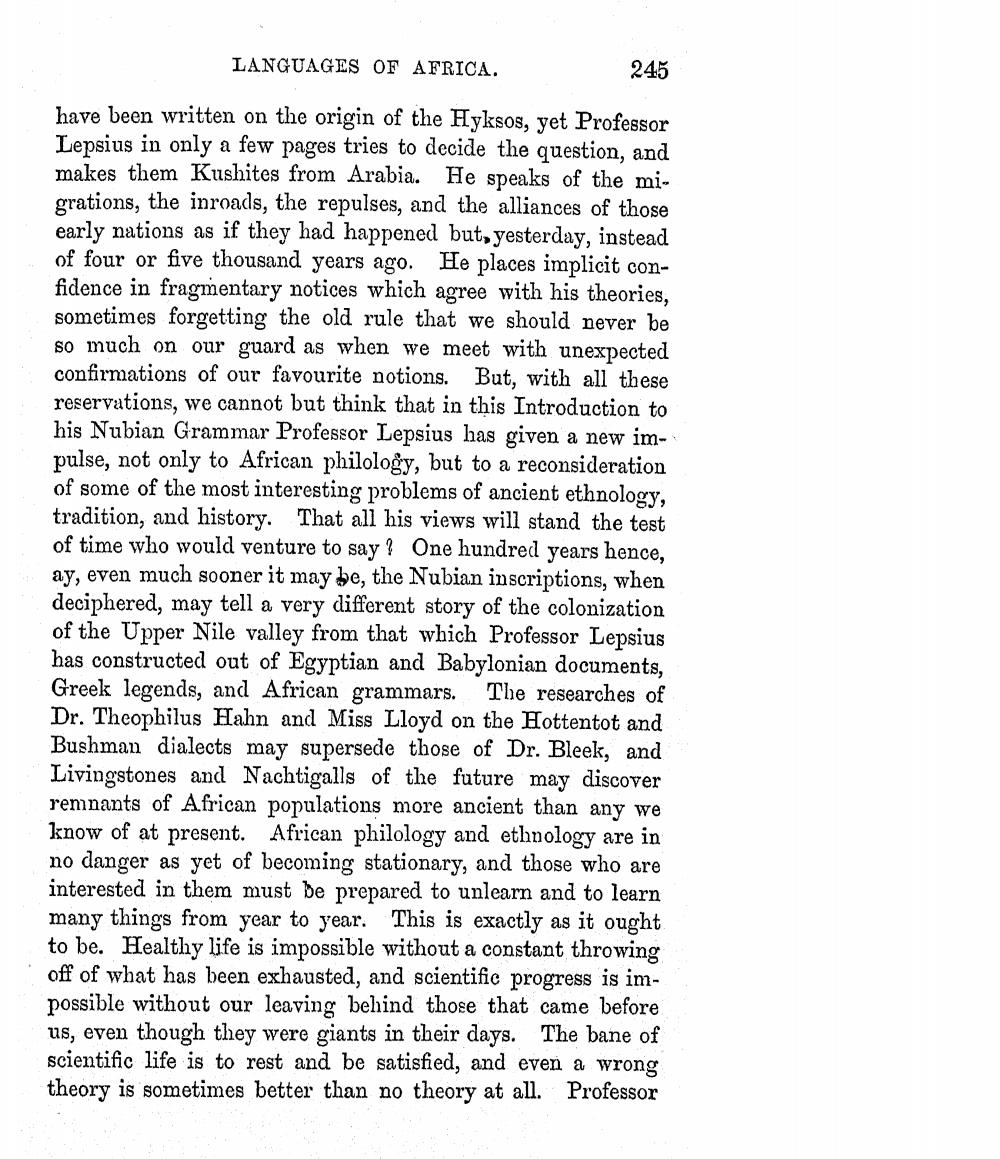________________
LANGUAGES OF AFRICA.
245
have been written on the origin of the Hyksos, yet Professor Lepsius in only a few pages tries to decide the question, and makes them Kushites from Arabia. He speaks of the migrations, the inroads, the repulses, and the alliances of those early nations as if they had happened but, yesterday, instead of four or five thousand years ago. He places implicit confidence in fragmentary notices which agree with his theories, sometimes forgetting the old rule that we should never be so much on our guard as when we meet with unexpected confirmations of our favourite notions. But, with all these reservations, we cannot but think that in this Introduction to his Nubian Grammar Professor Lepsius has given a new impulse, not only to African philology, but to a reconsideration of some of the most interesting problems of ancient ethnology, tradition, and history. That all his views will stand the test of time who would venture to say? One hundred years hence, ay, even much sooner it may be, the Nubian inscriptions, when deciphered, may tell a very different story of the colonization of the Upper Nile valley from that which Professor Lepsius has constructed out of Egyptian and Babylonian documents, Greek legends, and African grammars. The researches of Dr. Theophilus Hahn and Miss Lloyd on the Hottentot and Bushman dialects may supersede those of Dr. Bleek, and Livingstones and Nachtigalls of the future may discover remnants of African populations more ancient than any we know of at present. African philology and ethnology are in no danger as yet of becoming stationary, and those who are interested in them must be prepared to unlearn and to learn many things from year to year. This is exactly as it ought to be. Healthy life is impossible without a constant throwing off of what has been exhausted, and scientific progress is impossible without our leaving behind those that came before us, even though they were giants in their days. The bane of scientific life is to rest and be satisfied, and even a wrong theory is sometimes better than no theory at all. Professor




